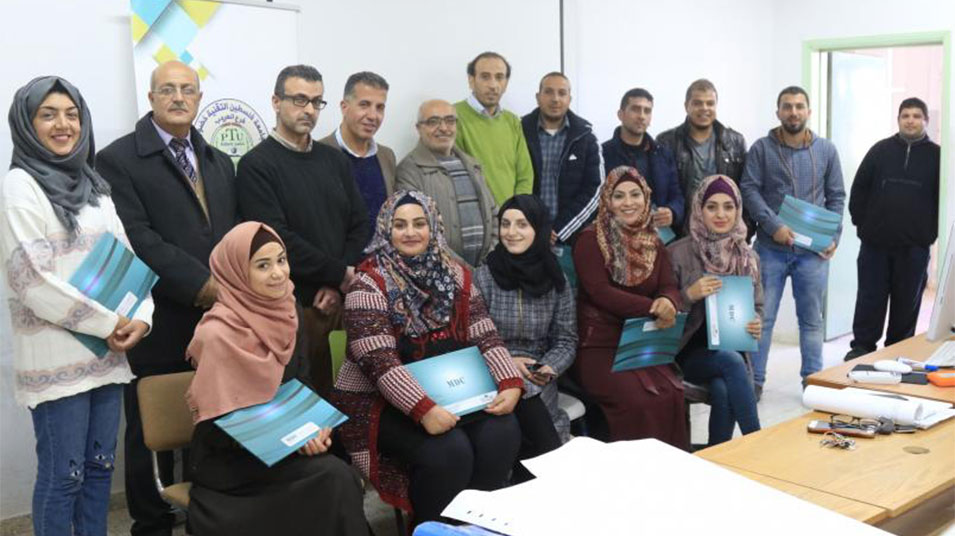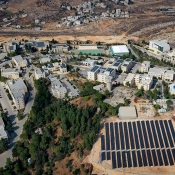Media Development Center wraps up radio production training course
The Media Development Center at Birzeit University has concluded a training course entitled Morning Radio Show Production. The course, part of a series of courses and workshops organized by the center, was presented by trainer, founder of a number of community radio stations, and host of Talit Suboh at Radio Al-Balad community station, Rawan Al Jayyousi.
The three-day, 18-hour training course – funded by the Swedish International Development Cooperation Agency (Sida) – which was attended by a group of radio workers engaged in presentation, production, and editing of radio shows, aimed to introduce the various types of morning radio shows and their methods of production, features, and characters – content- and form-wise.
Participants were also introduced to the methods of morning show preparation, as well as interviewing, reporting, surveying, handling breaking news and news follow-ups, and producing community and public service announcement segments.
Jayyousi divided the trainees into five groups and instructed each to work on its own project, and, at the end of the course, a morning show was compiled from each project.
Sixteen trainees participated in the course from various radio stations across Palestine, such as Al-Huriya Media Network, Al-Moasher Radio, Hayat FM Radio, Voice of Palestine, Sawt Al-Naqab Radio, and Nagham Radio, as well as trainees from the Arab American University and Palestine Technical University – Kadoorie.
“Production is the most vital stage of a good broadcast, and what makes it even more important is the increased listenership in Arab cities in the morning period,” said Jayyousi. “Radio stations have to compete with modern communication tools, and to do so, their content has to stay relevant to the community’s issues and problems, their success depends on it.”
TV and Radio Unit Coordinator Said Abu M’ala noted that morning radio shows offer variety, whether in format or content. Radio stations, he added, use morning shows as one way to present topics relevant to the everyday lives of listeners.







